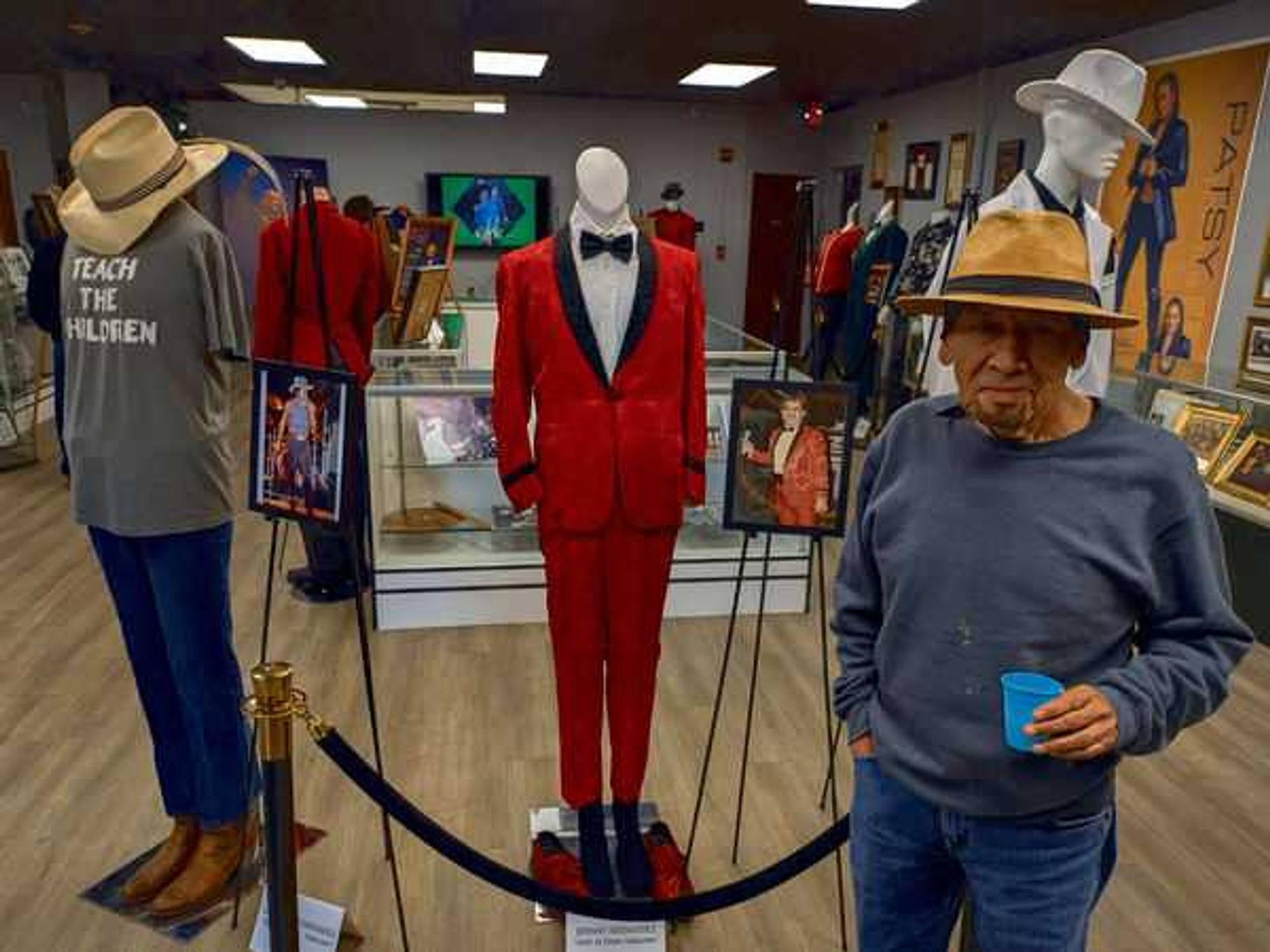Air Lobby
Inside the airport war: Who made the best points as Southwest and United dukedit out in City Council
 Southwest Airlines chairman, president and CEO Gary Kelly promises cheapflights, but the company's lean, streamlined workforce means not as many jobs.RollingOut.com
Southwest Airlines chairman, president and CEO Gary Kelly promises cheapflights, but the company's lean, streamlined workforce means not as many jobs.RollingOut.com- Southwest employees filled the city council chambers with golden yellow T-shirtsand matching buttons, proclaiming "Free Hobby Airport."Photo by Whitney Radley
Gary Kelly, chairman, president and CEO of Southwest Airlines, says that he is experiencing déjà vu all over again when it comes to his company's Houston battle — referring to a well-litigated uphill battle against legacy airliners during the Dallas-based discount air carrier's formative years.
Southwest has steadily grown over the past four decades, acquiring AirTran last year and recently proposing a $100 million, five-gate international expansion at Houston's William P. Hobby Airport, which would give the airline a launching pad for its first international flights to Mexico and the Caribbean.
But United Airlines, which has a stronghold on Houston's international market at George Bush Intercontinental Airport (IAH), won't go down without a fight.
The debate is a personal one, and the crowd — which filled the council chambers plus three overflow rooms — was fraught with tension.
On Tuesday, the airline wars continued at City Hall during a grueling four-and-a-half hour long hearing for the Council Budget and Fiscal Affairs Committee.
The debate is a personal one, and the crowd — which filled the council chambers plus three overflow rooms — was fraught with tension. Attorneys snipped at attorneys. City council members angrily questioned everyone.
First in the hot seat was city attorney David Feldman, who just last week presented to Mayor Annise Parker and the Houston City Council a personal memorandum and a report by Peter Kirsch of Kaplan Kirsch & Rockwell — both of which essentially argue that the city has no choice but to approve Southwest's proposal in order to comply with Grant Assurances to the Federal Aviation Administration. That body has allocated hundreds of millions of dollars in grants to the Houston Airport System (HAS) since 2010, with $90 million going to Hobby alone.
One such assurance, which Kirsch sees as the definition of Houston's obligation to the FAA and Southwest, states that the city must "make the airport available as an airport for public use on reasonable terms and without unjust discrimination to all types, kinds and classes of aeronautical activities, including commercial aeronautical activities offering services to the public at the airport."
That sentiment was later disputed by Kirk Shaffer, former associate administrator for airports for the FAA and one among an entourage arguing on United's behalf at Tuesday's hearing.
Shaffer claimed the opposite: That building the proposed international terminal may violate grant assurances by exclusively benefiting Southwest, at least in the beginning. Plus, since the Houston Airport System boasts multiple airports — IAH, Hobby and Ellington — the city has the option to authorize just one as an international gateway.
Jobs, Jobs, Jobs
According to Kelly, all that Southwest wants is an amendment to its lease agreement with the airport system. He promises that Southwest's entrance into Houston's international travel arena will create a more competitive atmosphere, which will drive down airfare costs in Houston (IAH was recently dubbed the most expensive hub to fly from) and stimulate the local economy.
United claims that the siphoning of just two passengers can make a flight unprofitable, and it will reallocate unprofitable flights to markets elsewhere.
Southwest has offered to assume all of the risk, putting up $400 million for the purchase of new aircraft and even footing the $100 million expansion bill if a finance bond deal with the city (which would be recouped by a $4.50 Passenger Facility Charge) is not agreed upon.
But Kelly can't promise the 10,000 local jobs that a recent HAS economic impact report promised would come with the airline's international expansion. He foresees adding just 700 Southwest positions nationwide, with a paltry 50 to 100 local jobs, over the next eight years.
(Southwest has provided several case studies to the City Council but, much to the council members' frustration, has not conducted an economic impact report separate from the aforementioned HAS document.)
By contrast, a report commissioned by United warns that adding international flights at a second airport will cost the city of Houston 3,700 jobs and $500 million in revenue each year by splitting up international travel. The airline claims that the siphoning of just two passengers can make a flight unprofitable, and it will reallocate unprofitable flights to markets elsewhere.
Moreover, United claims that Phases II and III of its $700 million expansion at IAH are at risk if the city sides with Southwest.
Battle On
The hearing ended without much of a resolution. Southwest and United representatives both presented compelling arguments, but neither the HAS-commissioned economic impact report nor a separate United study seem comprehensive or unbiased enough to use as basis for a formal decision.
All council members seem to agree that jobs are the first priority, that competition (which Southwest offers) can't be regulated and United can't be given preferential treatment.
"We are only talking to [Houston]," promised Kelly. At the same time, Southwest officials say they won't wait until next year for the city to make a decision — the airline is already expanding internationally, and will begin to look elsewhere.
Next logical steps include a formal determination of obligations to the FAA's Grant Assurances and determining, once and for all, how many jobs Houston would lose or gain if Southwest expanded to Hobby.


 The newly opened Totally Tejano Hall of Fame and Museum includes a growing collection of memorabilia. Photo by Edmond Ortiz
The newly opened Totally Tejano Hall of Fame and Museum includes a growing collection of memorabilia. Photo by Edmond Ortiz